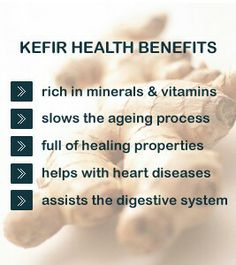Probiotics and Internal Ecosystem

Probiotics, the good-for-you bacteria keep your GI system functioning in tip-top shape. “Research is finding that a healthy microbiome may play a role in reducing inflammation, a risk factor involved in illnesses ranging from colds to cancer, heart disease, arthritis, and cognitive decline . In addition, the bacteria may help burn body fat and reduce insulin resistance. So to stay slim and healthy, consider adding more probiotic foods to your diet .
Your body contains about 100 trillion bacteria — more than 10 times the number of cells you have in your entire body. It’s now quite clear that the type and quantity of micro-organisms in your gut interact with your body in ways that can either prevent or encourage the development of many diseases. The ideal ratio between the bacteria in your gut is 85 percent “good” and 15 percent “bad.” Maintaining this optimal ratio is essential for good health and high immunity .
Eating sugar actually nourishes the bad or pathogenic bacteria yeast and fungi in your gut, which may actually harm you more than its impact on insulin resistance. One of the major results of eating a healthy diet is that you cause your beneficial gut bacteria to flourish, and they secondarily perform the real “magic” of restoring your health. You may have noticed that probiotics like KEFIR are now featuring in articles relating to all sorts of health problems, including obesity, diabetes, depression and heart disease.
As explained by Russian neurologist Dr. Natasha Campbell-McBride, a woman’s gut flora can also influence the health of her child, and if your child’s gut flora is compromised from birth, he may be at an increased risk of vaccine damage. All in all, the research into probiotics indicates that supplementing with probiotics like KEFIR is probably more important than taking a multi-vitamin and its true importance for your health is likely right up there with vitamin D. Probiotics are also essential for optimal digestion of food and absorption of nutrients, and they help your body produce vitamins, absorb minerals and aid in the elimination of toxins.
Your gut bacteria are very vulnerable to lifestyle- and environmental factors, such as:Sugar , Processed Foods , Refined Grains , Antibiotics , Antibacterial Soaps , Pollution etc . All of these factors throw your gut flora out of balance, and, as you can see, many of these factors are pervasive and can be difficult to avoid. However, it’s not impossible. Simply altering your diet to avoid processed foods and focusing on whole (ideally locally grown organic) foods will make a big dent! That change alone will dramatically reduce the amount of sugar and fructose you consume, as well as automatically limit your exposure to antibiotics and agricultural chemicals.
How can you tell whether your health is already starting to suffer from a lack of healthy bacteria in your digestive system? Gas , Bloating , Constipation , Nausea , Fatigue , Sugar and refined carbsCravings , Headaches etc are all signs that unhealthy bacteria have taken over too much real estate in your gut, and that you probably need to add some healthy probiotics like KEFIR to your diet .
Your Gut, Brain and Primary Immune Defense are All Connected…
Two additional signs that your gut flora may be adversely impacted are depression and lowered immunity. Both of these are actually common-sense side effects of poor gut health, but they’re usually completely overlooked…Most people, including many physicians, do not realize that 80 percent of your immune system is located in your digestive system, making a healthy gut a major focal point if you want to maintain optimal health.
Furthermore, your gut is quite literally your second brain, as it originates from the same type of tissue as your brain! During fetal development, one part turns into your central nervous system, while the other develops into your enteric nervous system. These two systems are connected via the vagus nerve, the tenth cranial nerve that runs from your brain stem down to your abdomen. Hence your gut and your brain work in tandem, each influencing the other. And this is why your intestinal health can have such a profound influence on your mental health, and vice versa.
This also helps explain the link between neurological disorders (including ADHD and autism) and gastrointestinal dysfunction. For example, gluten intolerance is frequently a feature of autism, and many autistic children will improve when following a strict gluten-free diet.
The best way to ensure optimal gut flora is to regularly consume traditionally fermented foods like KEFIR . An added boon of traditionally fermented foods is that some of them are also excellent sources of vitamin K2, which is important for preventing arterial plaque buildup and heart disease.

